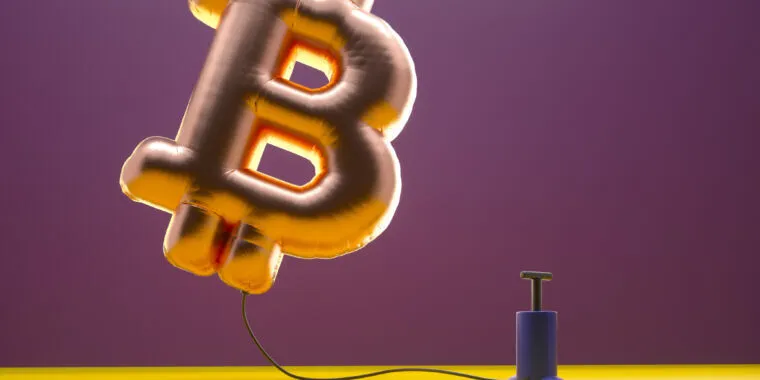Well, so a lot of people call it a Ponzi scheme, and it certainly has been used as one before, but the thing that separates it from a true Ponzi scheme is there is a product, and it's not you.
Places accept Bitcoin as a currency, there's Bitcoin ATMs, all that. This makes it valuable as a method to make online purchases, specifically, as a third-party payment processor. First you convert your money to Bitcoin through a service of your choice that's not related to the person you're paying, then you transact, and eventually that person cashes out Bitcoin for money. This generates 3 transactions, which a Bitcoin miner can authenticate and be paid in Bitcoin for their efforts.
This seems convoluted but it's about the same process as using a debit card, with MasterCard or Visa promising to balance everything in a bit and acting as an institution to verify trust.
This process is not the only positive thing about Bitcoin, but it's a major one and ensures two things. The first is that those exchange services give everyone in this "Ponzi scheme" an out. While they're running, you can't be pumped and dumped in the usual way. This creates some confidence, which helps keep people in, which raises the value. A normal Ponzi scheme promises an out, but has none.
The second, because there's people who trust in Bitcoin on actual merits, is that Bitcoin becomes a legitimate investment. It becomes equivalent to currency exchanges, where people exchange their money anticipating the value of USD or the euro to raise or fall. Again, very much like a Ponzi scheme, but since these people have an out, this is a risk, not a scam.
As far as I know (I'm not an expert) these two kinds of transactions are the bulk of the transactions in Bitcoin, but between the two, Bitcoin will remain alive with frequent usage and that enables bitcoin mining. None of this is stable, but it's also not a scam.
During the big push to get some vendors to accept Bitcoin this system hadn't formed, there were plenty of people willing to sell and mine Bitcoin, but few that were willing to buy it, and calling it a Ponzi scheme was appropriate. It's just the end goal wasn't to sucker someone into giving you money, it was to sucker them into supporting an economy that didn't exist. They succeeded, so now it's not a scam, just risky.



